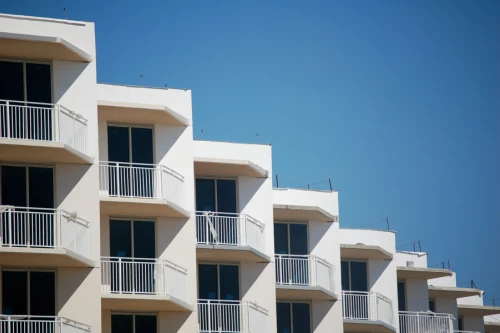A Ban on Security Deposits May be Coming Your Way
For years a security deposit has been the main tool landlords rely on when tenancies don’t work out as planned. But due to the pandemic and affordable housing crisis, there is now a push to eliminate a security deposit requirement altogether. Landlords are understandably concerned they will be more vulnerable to damages and rental income losses, but a security deposit alternative such as LeaseGuarantee may be the solution.
How did this movement start?
The idea of making housing more affordable for tenants by eliminating barriers to entry (such as a security deposit) has been around for decades. In a 1990 LA Times article regarding security deposits, City Councilman Zev Yaroslavsky states, “…perhaps the next solution will be to simply prohibit security deposits of any type… I think this will have a more deleterious effect on the landlord, but it might have a more positive effect on the creation of affordable housing.” At that time, the city had just passed an ordinance requiring that owners of rent-controlled apartments pay tenants 5% interest on security deposits.
Today, more than half of all states limit the amount of security deposit a landlord can collect – usually to one to two months’ rent. And many require landlords to return security deposits as soon as 14 days after move-out. In the last year, a couple progressive cities passed a new security deposit law that takes these limitations a step further.
Security Deposits in 2020
For example, in January 2020 the Cincinnati City Council amended Chapter 871 of the Cincinnati Municipal Code to require landlords with more than 25 units to give tenants one of the following alternatives to a security deposit:
- Rental security insurance instead of paying for a security deposit
- A reduced security deposit that is half of one month’s rent
- A security deposit that is split into three payments over the course of six monthly installments
Although there are no clear penalties on landlords who do not follow these rules, a tenant could sue the landlord for damages if the landlord refuses to accept a security deposit alternative prior to lease signing.
Following Cincinnati’s lead, lawmakers from other cities and states across the country began to consider security deposit amendments as well in relation to an ever-growing affordable housing crisis. The pandemic has only accelerated these efforts as people affected by unemployment may not be able to afford a security deposit.
Notably, California’s Bill AB3260 is now on the Assembly floor, having passed out of the Judiciary Committee last month. The bill proposes that all California landlords allow tenants an alternative way of paying a full security deposit through a security deposit insurance or monthly installments.
New York City’s Mayor is also considering giving tenants similar options and Governor Cuomo has already issued emergency legislation giving tenants the option to use their security deposit to pay for rent.
What should landlords do?
The trend towards security deposit alternatives is gaining momentum we predict many other cities and states will be jumping on board too.
It’s important that as more cities and states begin to adopt these new security deposit laws that landlords are aware of what they can do to mitigate their risk without a security deposit. Accepting a security deposit in payments is problematic. Tenant defaults are most common during the first six months of a tenancy, which means you may have very little to fall back on if the tenant stops paying rent early on. Similarly, accepting half of first month’s rent as a security deposit isn’t going to be even close enough to cover your losses in most cases.
That leads us to the best solution – a security deposit alternative such as LeaseGuarantee.
LeaseGuarantee reimburses landlords for rental losses from unpaid rent, legal fees, and damages up to $10,000. That’s much more protection than a one or two month security deposit. The cost to the tenant starts at only $199/yr which makes their move-in affordable.
Almost all tenants qualify for LeaseGuarantee, there is no need to submit documentation. Simply run a tenant background check and choose the level of protection you need, $1,000, $2,500, $5,000, $7,500, or $10,000, then click a button to invite the tenant to purchase.
LeaseGuarantee puts more dollars in tenants’ pockets which they can use for their moving costs or other expenses rather than have the money tied up in a security deposit. And landlords are not left vulnerable to losses. Regardless of whether your city or state has passed a security deposit law, adding LeaseGuarantee to your lease can only help ease the stress that comes with property management.
















 Accessibility
Accessibility